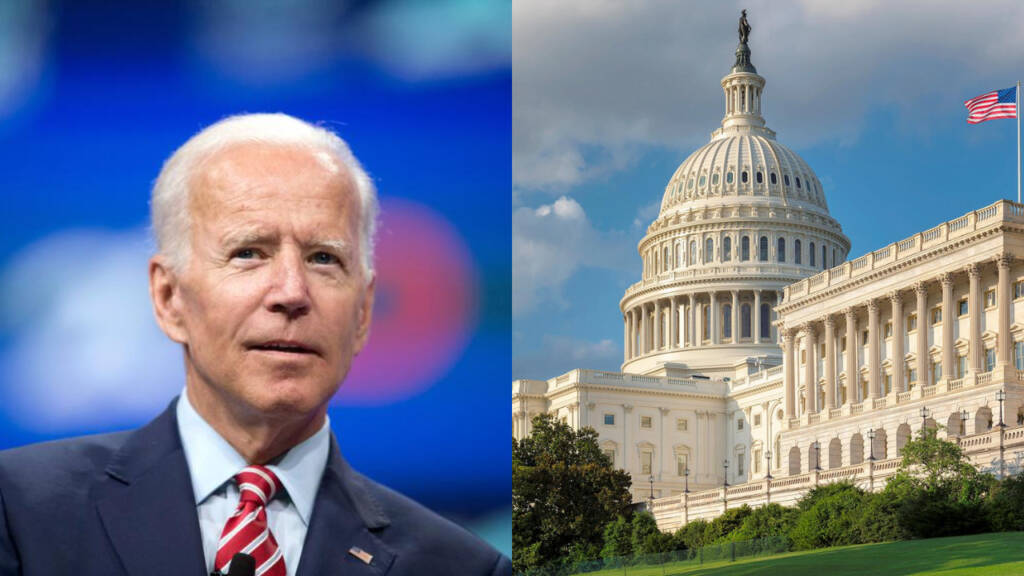This is the first time that the Democrats are pushing for a bill to grant statehood to Washington DC. The bill has been voted out of the house twice, once in 1993 and once the last year.
Democrats are pushing for a power grab in the House of Representatives and the Senate. Despite winning the elections, they are wary that the majority of the house will shift to the Republicans in two years as is customary after the presidential elections. Therefore, to hold onto the majority, the Democrats are pushing to grant statehood to Washington DC, a hub of Democrat ideals, which would ensure them one seat in the House of Congress and one in the Senate.
On Wednesday, the Senate Democrats revived the bill to continue fighting to grant the statehood to Washington DC. The bill would make the District of Columbia the 51st state of the Union and grant the State two senators and one delegate of the House of Representatives. It would be met with fierce resistance by the Republicans.
Delaware Sen. Tom Carper, who introduced the bill said, “This isn’t a Republican or Democratic issue; it’s an American issue because the lack of fair representation for DC residents is clearly inconsistent with the values on which this country was founded.” Even Washington DC’s Democratic Mayor Muriel Bowser has also pushed for statehood.
Former President Donald Trump said in an Oval Office interview with the New York Post last year that the Republicans are not “stupid” enough to add guaranteed Congressional Democrats. “DC will never be a state,” Trump said. “You mean District of Columbia, a state? Why? So we can have two more Democratic — Democrat senators and five more congressmen? No thank you. That’ll never happen.” Trump had added.
In July last year, Several Republican senators blasted the House-passed Washington DC statehood bill on Wednesday, calling the legislation unconstitutional and a “Democratic power grab,” which would “empower the most radical agenda in modern American politics.”
Sen. Lindsey Graham of South Carolina joined GOP Sens. Steve Daines of Montana and Tom Cotton of Arkansas, who were all up for reelection last year, held a press conference detailing their opposition to the measure.
“This is about expanding the Senate map to accommodate the most radical agenda that I’ve ever seen since I’ve been up here,” Graham said.
Their remarks came days after House Democrats passed legislation making Washington, DC, a state, by a vote of 232-180. Last week, the White House also said that Donald Trump would veto the bill if it came to his desk.
The Senators had claimed that the statehood bill is unconstitutional. The bill would decrease the capital to a small portion of the National Mall, which contains the White House, Capitol House, the Supreme Court and other federal structures. The remainder of the DC, after Frederick Douglass, will be recognised as a state renamed the Douglass Commonwealth of Washington.
This will be the third time Democrats are pushing for a bill to grant statehood to Washington DC. In 1993, Congress voted legislation out of committee and it went to the House floor for a vote. Also, numbered H.R. 51, The 1993 legislation was titled the ‘New Columbia Admission Act.’ It failed badly before the whole House by a vote of 153-277. The House has not voted on D.C. statehood since, and the Senate never has. Democratic Rep. Steny Hoyer (5th District) and now House Majority Leader voted against the bill in the bill in 1993.
But despite strong voting, including the support of Speaker Nancy Pelosi, the bill still fails to materialise. Democrats, who hold a majority in the Congress, now believe that they can push through the bill with support from President Joe Biden. Although they would still be unable to pass the bill as it would require a two-thirds vote for a constitutional amendment or in simpler terms, the support of ten Republicans which will be an unlikely scenario. Ultimately, H.R. 51 will pass the House and fail to come to a vote in the Senate.
